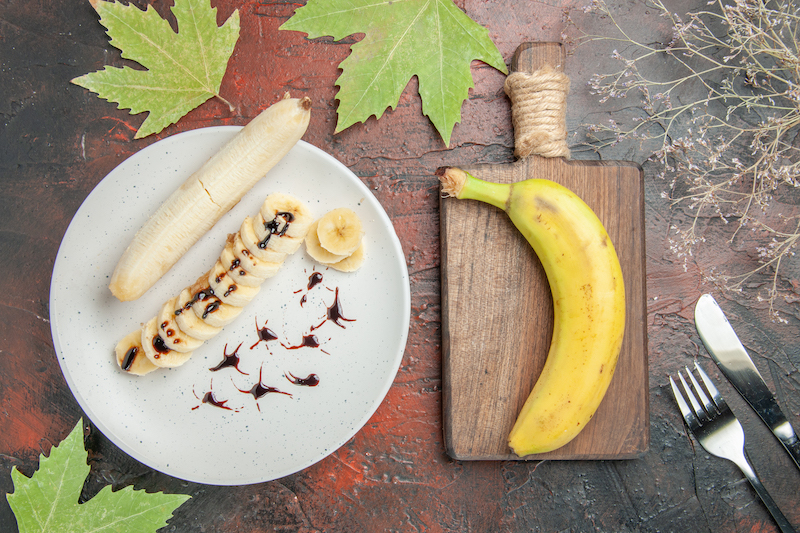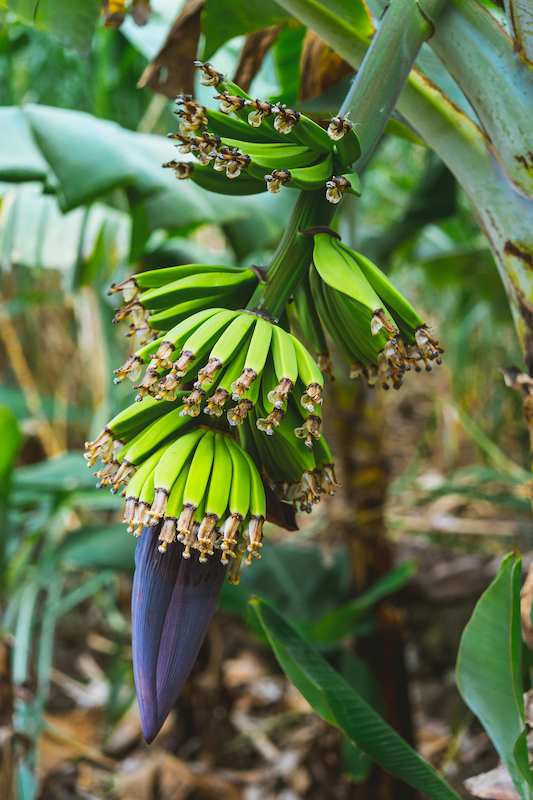Today I wanted to talk about every child’s favourite yellow fruit, the humble banana which in Spain is called plátano.
The word comes from the Latin platănus, originating from the Greek πλάτανος plátanos. Once we have dealt with the fruit itself, read on to see that this word means much more than just banana!
Latin American pronunciation
European pronunciation

Plátano is a masculine noun and takes the following definite and indefinite articles:
- el plátano = the banana
- los plátanos = the bananas
- un plátano = a banana
- unos plátanos = some bananas
El plátano es una fruta que se puede comer crudo.
The banana is a fruit that can be eaten raw.
As well as eating the fruit peeled as it comes, there are other ways to enjoy eating the banana:
- plátano frito = fried banana
- licuado de plátano = banana smoothie
- pan de plátano = banana bread
- liquor de plátano = banana liqueur
- plátano manzano = variety of banana eaten in Latin America with a flavour similar to apple
- plátano guineo = banana that is eaten green, usually cooked in savoury dishes

As I mentioned at the beginning of the article, plátano means so much more than just banana.
First of all, we should mention the other type of fruit using the same name in most of Latin America and the Caribbean, the plantain. This fruit can also be known as plátano verde, plátano grande, or plátano macho (also in Spain), and can be bought verde (green) or maduro (ripe).
The plantain is part of the same family as the banana and is used more like a vegetable than a fruit. It is always cooked before being eaten.
El plátano macho generalmente se consume cocinado, ya sea frito o asado.
The plantain is generally eaten cooked, either fried or roasted.

I simplified the use of the word plátano above when explaining the difference in meanings in different parts of the world. Generally speaking the rules above apply in most areas.
However, there are many regional variations especially in Latin America where these words can become interchangeable and there are also certain countries where the word banana (or banano) is used for the banana.

An idiomatic expression featuring plátano:
And a useful proverb:
Plátano maduro no vuelve a verde
Literal translation: a ripe banana does not return to being green
English meaning: what’s done is done
Finally let’s talk about the botanical meanings of the word plátano:
Plátano is used to name the herbaceous plant Musa from the family Musaceae, from which the banana and plantain fruits come.
Plátano is also used to name the ornamental plane tree or London plane tree (Platanus) which looks like an American sycamore. This tree is known in Spain as plátano híbrido, plátano de sombra, or sicomoro.

